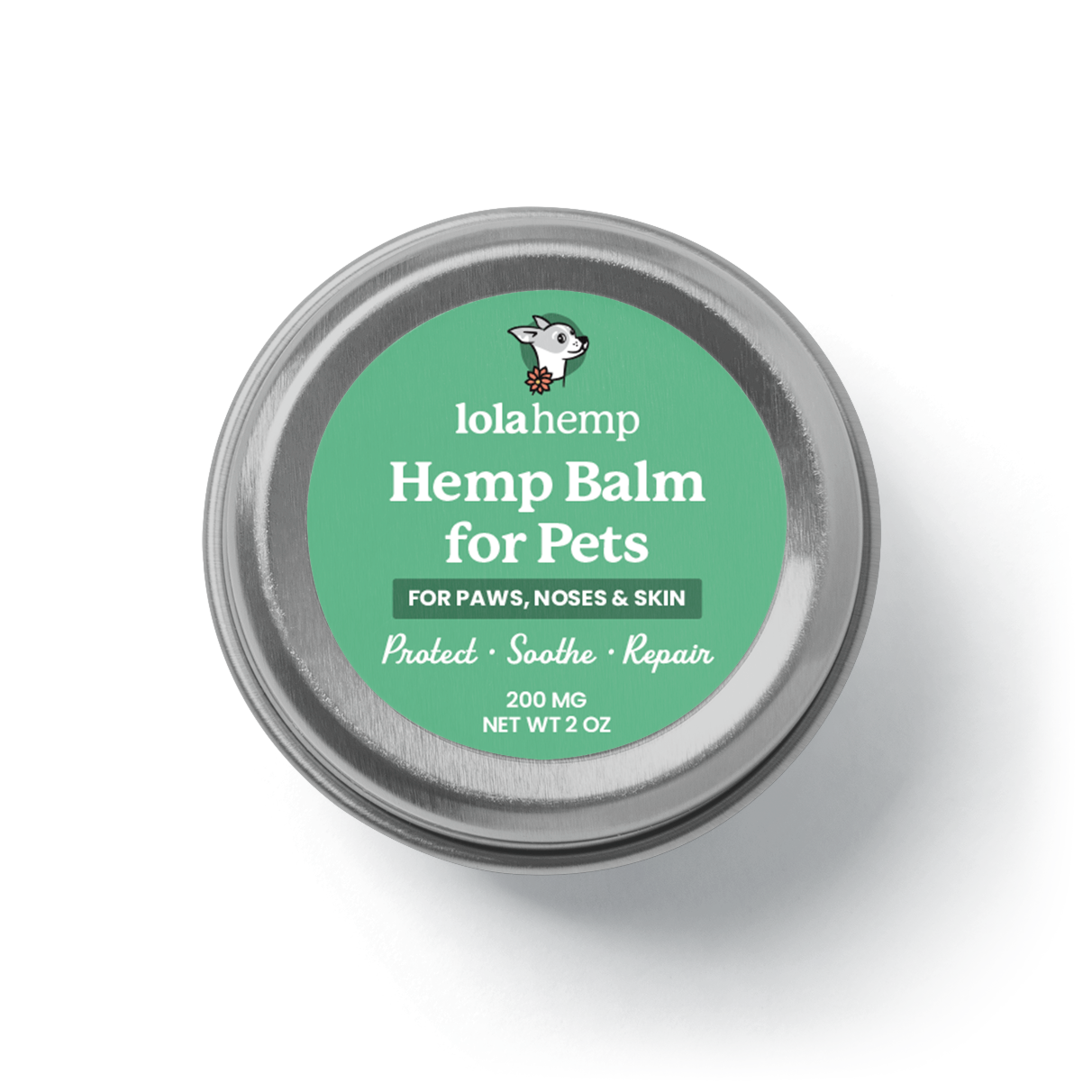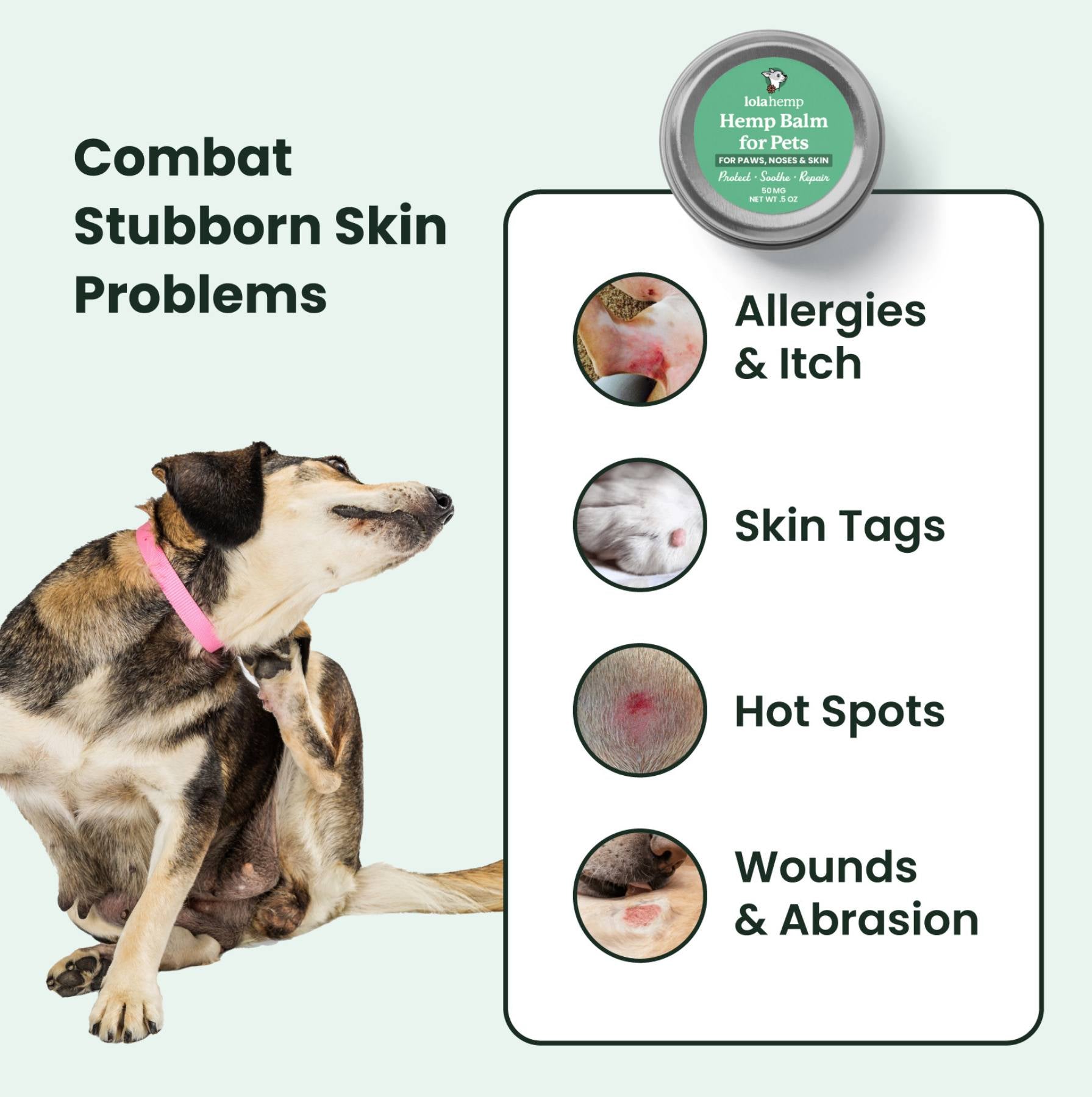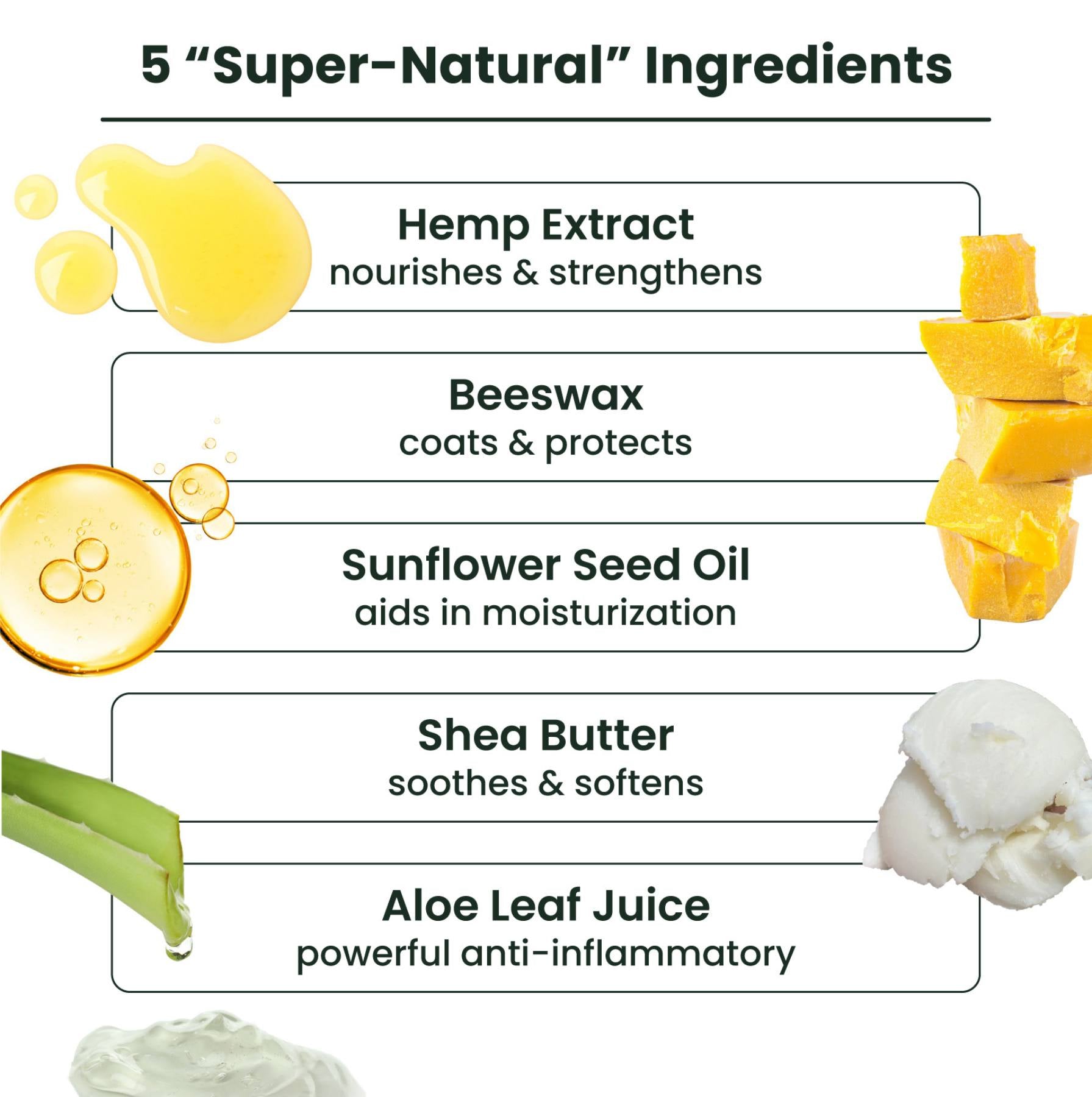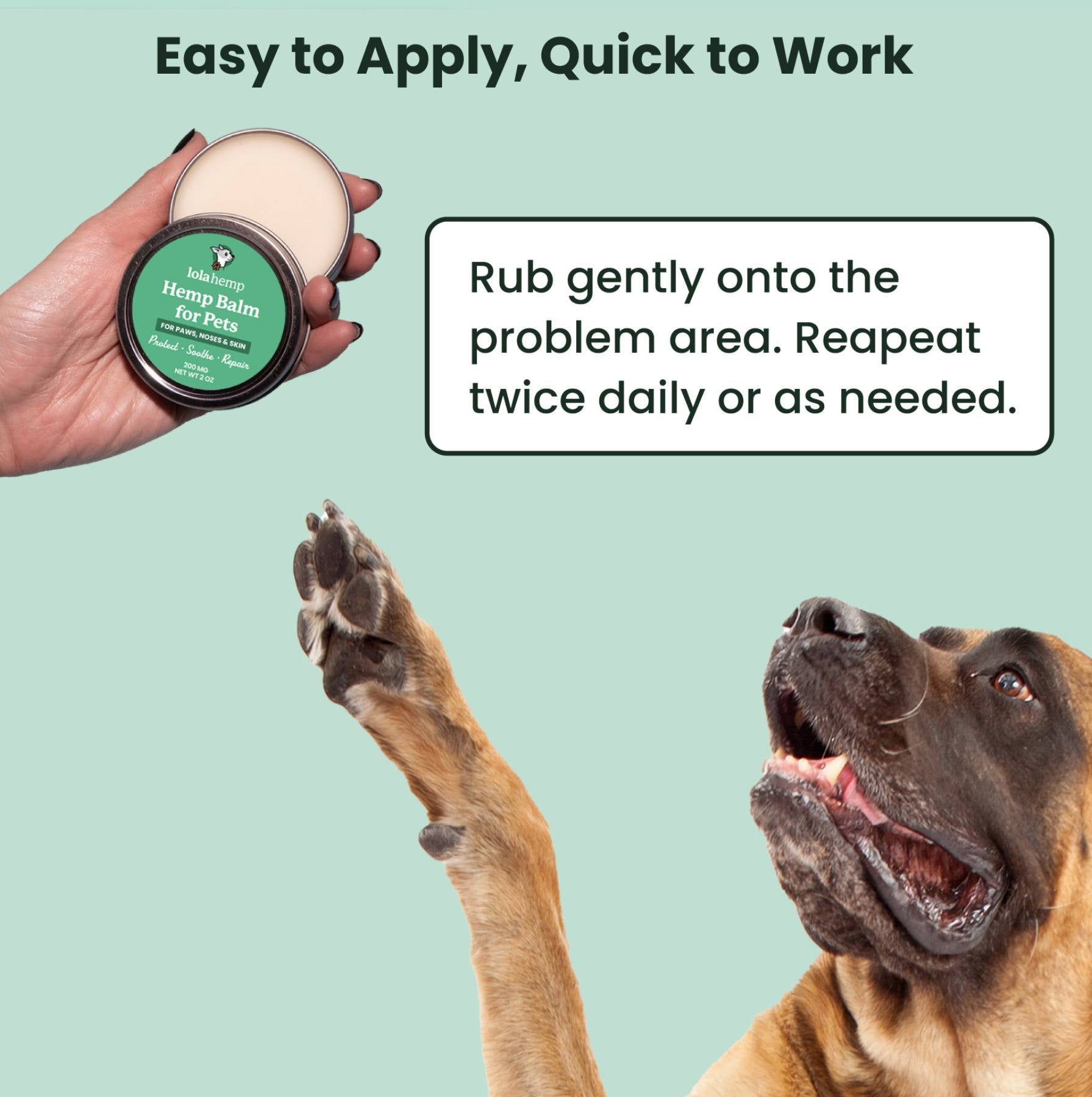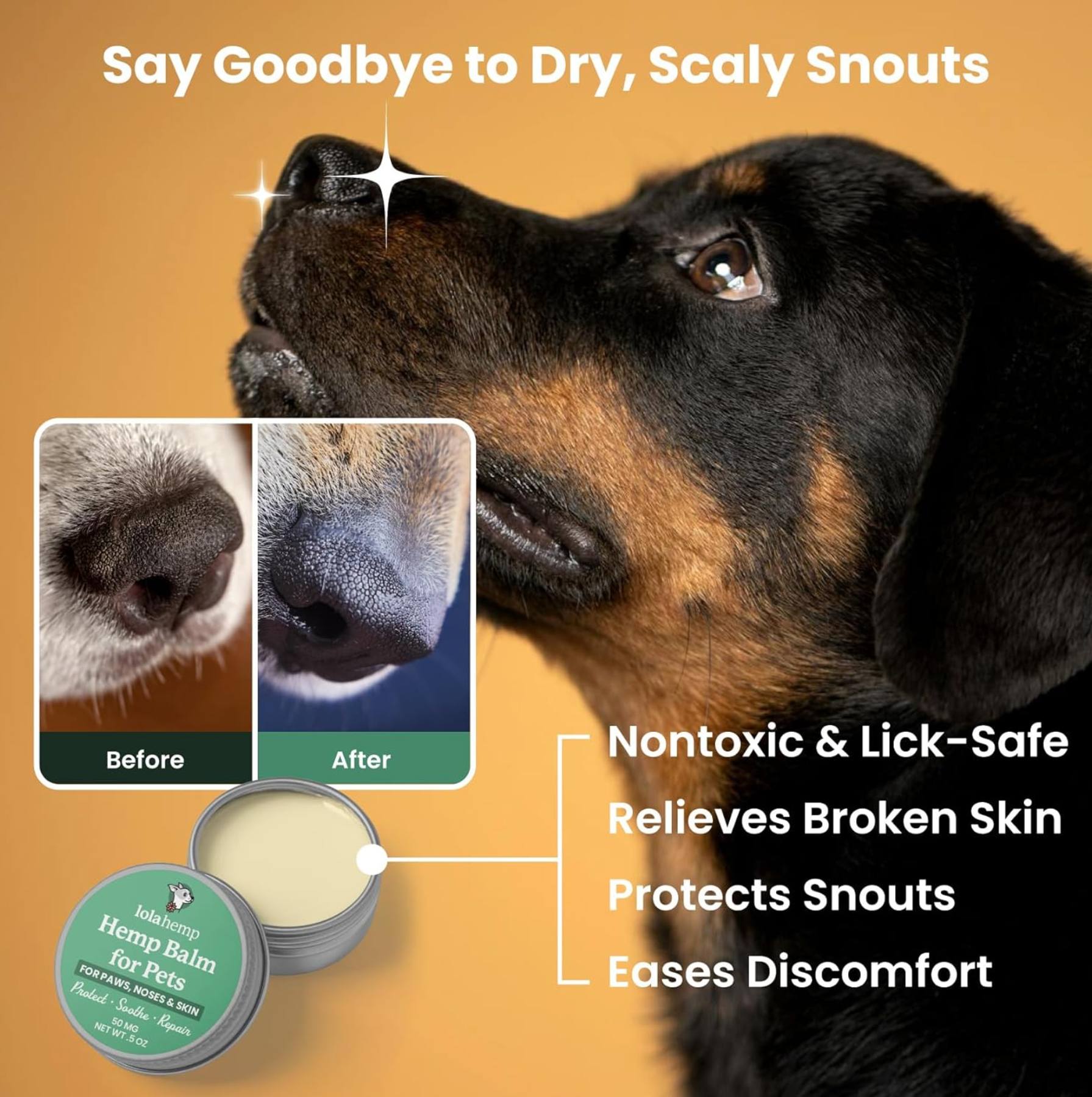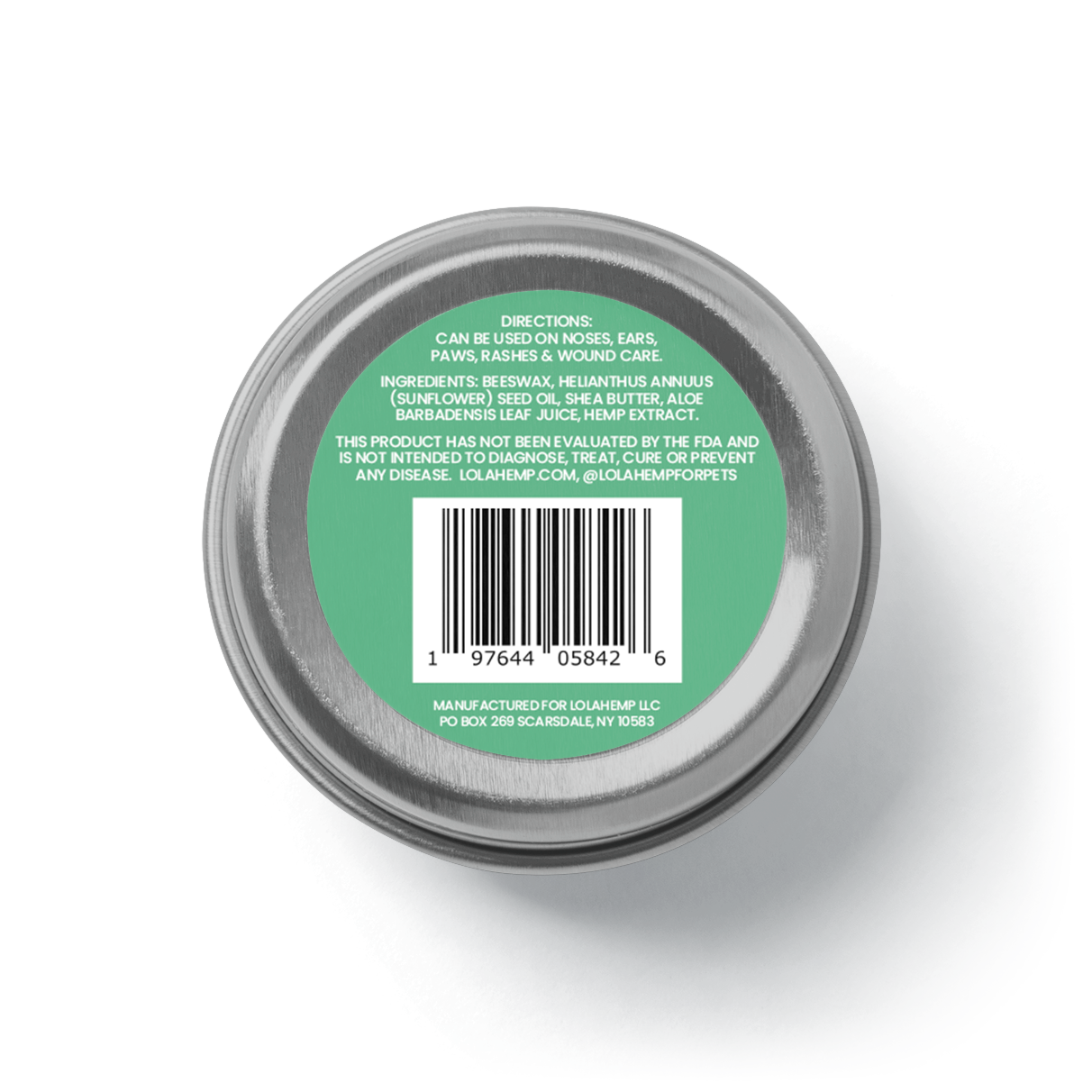If your dog's paws are causing them discomfort, explore some of the dog paw allergy home remedy options listed in this article. Paws are often the recipients of allergic reactions, causing dogs to lick and itch them excessively.
If paw licking goes untreated or uncared for, it could lead to more significant issues. There are ways to relieve the topical discomfort while you address your dog's underlying allergies. Topical balms for paws can provide a great deal of relief, helping to reduce licking and itching.
How to Fix a Dog's Itchy Paws at Home
Fortunately, there are numerous ways in which you can manage and relieve your dog’s itchy paws at home. From booties to balms, these remedies promote your dog’s holistic well-being.
The natural home remedies you can use include:
1. CBD Balm
You can use CBD pet balms to soothe localized areas. Topical balms are applied directly to the affected area, and products made specifically for dogs should be safe for your pet to lick afterward.
Lolahemp’s CBD topical balm for pets contains naturally occurring CBD from the hemp plant as well as other dog-safe soothing ingredients.
2. Dog Boots
You may also consider covering the paws using boots. Using boots can, especially, be effective after applying cream or gel. It prevents the cream from rubbing off and also keeps your dog from licking it off.
Dog boots can also help prevent the occurrence of paw irritation in the first place. Covering your dog’s paw pads when walking outdoors can keep their paw pads clean and healthy. It prevents dryness, cracks, and irritation in sand, hot cement, and extreme temperatures.
3. Immunity Mushroom Supplements
Lolahemp's Immunity Mushroom Chews for Dogs are formulated with a range of dog-safe mushroom extracts, colostrum, and other natural ingredients to support a healthy inflammatory response in dogs.
4. Colloidal Oatmeal Baths
Colloidal oatmeal baths are an age-old remedy that may help calm your dog's skin. It may promote calmness and relaxation by washing away allergens trapped in your dog’s fur.
Colloidal oatmeal is produced by grinding the oat into a fine powder and boiling it to extract the colloidal. You can grind plain, sugar-free colloidal oatmeal into a powder at home. Using colloidal oatmeal dog soak baths may contribute to maintaining the comfort of your dog's ears, nails, skin, and paws.
Also, oatmeal is non-toxic to canine companions. As a result, you don’t have to worry about any potential side effects on your dog’s health.
5. An Upgraded or Prescription Diet
Your dog may have allergies to some ingredients found in dog food. These ingredients can be beef, chicken, and gluten or wheat. Such ingredients can trigger your dog’s allergic reactions, leading to itchy skin or paws.
You can use an elimination diet to identify which food allergies your pet has. Then, replace those dog foods with suitable ingredients. Some common replacements to consider include fish oil (you can get it from salmon). Fish oil is rich in omega-3 fatty acids. Omega 3 fatty acids are known to contribute to overall well-being, including maintaining skin and digestive function.
You can also use a vet-recommended prescription diet. Prescription diets recommended by your veterinarian contain the right ingredients to avoid allergies while supporting your dog’s health.
Always remember to consult your vet before using specific ingredients or changing your dog’s diet.
6. Apple Cider Vinegar
Apple cider vinegar is a tasty homemade ingredient found in salad dressings. This study shows that you can use apple cider vinegar to manage mild yeast infections on the skin.
To make apple cider vinegar at home, simply mix 50% apple cider vinegar with 50% water in a clean spray bottle. For itchy pet paws, use the apple cider vinegar solution for a nice and relaxed paw soak for about 5 minutes.
Don’t use the apple cider vinegar solution on broken skin. Using it on broken skin can lead to further irritation.
Additionally, apple cider vinegar may cause gastrointestinal (GI) upset in some cases. Therefore, monitor your dog to ensure that they don’t lick off the solution.
7. Baking Soda
Apart from making your baked product rise, baking soda has more uses. You can combine it with water and blend it into a thick paste that helps dry out rashes on the skin.
As a result, baking soda can be used to support skin health, especially for dogs with sensitive skin.
8. Chamomile and Herbal Tea Soaks
Green tea, chamomile, and calendula contain the right properties to soothe and cool off irritated skin. These ingredients can be very useful additions to a dog bath.
To use herbal green tea soak, add tea bags to a tub with warm water. Let the tea bags steep for up to 3 minutes. Remove the tea bags and let your dog soak in the green tea bath for at least 5 minutes. This solution is helpful for dogs with hot, itchy skin patches.

Possible Reasons Your Dog Has Itchy Paws
The well-being of your canine companion is a top priority. Therefore, when the issue of itchy paws becomes a persistent problem, it’s time to identify the potential culprits.
There are various reasons why your dog may have itchy paws. The most common causes are allergies. Allergens such as grass, food proteins, and pollen can make your pup itch everywhere. However, the paws are the most affected parts.
Managing Your Dog’s Itchy Skin Using Veterinary Medicine
If your dog experiences severe itching and you’ve already ruled out any potential causes like allergies and the environment, visit a licensed veterinarian dermatologist immediately.
A veterinarian dermatologist is a veterinarian with specialized training in skin and ear-related conditions, especially in dogs and cats. The veterinarian dermatologist will run tests that general practitioners don’t have the capacity or equipment to handle. As a result, you will have better chances of identifying the root cause of your dog’s itchiness faster.
However, it can be expensive to deal with dry, cracked, or yeast-infected dog paws. The average cost of a dog allergy test is around $200 per session. The test could also require multiple tries to identify the exact cause of itchy skin or paws.
Fortunately, you can use a dog insurance policy to cover the cost of treating your dog’s itchy paws. Insurance firms like Independence American Insurance Company can cover the cost of your dog’s allergy test and treatment, giving you comfort and peace of mind.
Conclusion
As you have gathered, various reasons can lead to itchy dog paws. The multitude of reasons also means that therapy isn’t one-size-fits-all.
To get to the bottom of the issue, you need to involve your vet. You may experience challenges identifying the right ingredient from the list of natural remedies like apple cider vinegar, CBD oil balm, and aloe vera gel. Your vet will offer proper advice and help you identify the right natural treatments for your dog.
Frequently Asked Questions About Dog Paw Allergies and Home Remedies
1. What causes dogs to have itchy paws?
Common causes include allergies, yeast infections, dry or cracked paw pads, and environmental irritants like grass or pollen.
2. Can I use CBD balm for my dog’s itchy paws?
Yes, dog-safe CBD balms can help soothe irritation and provide moisture relief for dry or inflamed paws.
3. Are home remedies safe for treating dog paw allergies?
Most natural remedies like oatmeal soaks, coconut oil, and apple cider vinegar can help if used correctly—but always avoid broken skin and consult your vet first.
4. How can I prevent paw irritation in dogs?
Regular paw cleaning, moisturizing, avoiding allergens, and using boots on hot or rough surfaces can help prevent irritation and cracking.
5. When should I see a vet for my dog’s itchy paws?
If your dog’s itching persists, worsens, or causes sores or swelling, consult a veterinarian or a veterinary dermatologist for proper diagnosis and treatment.

